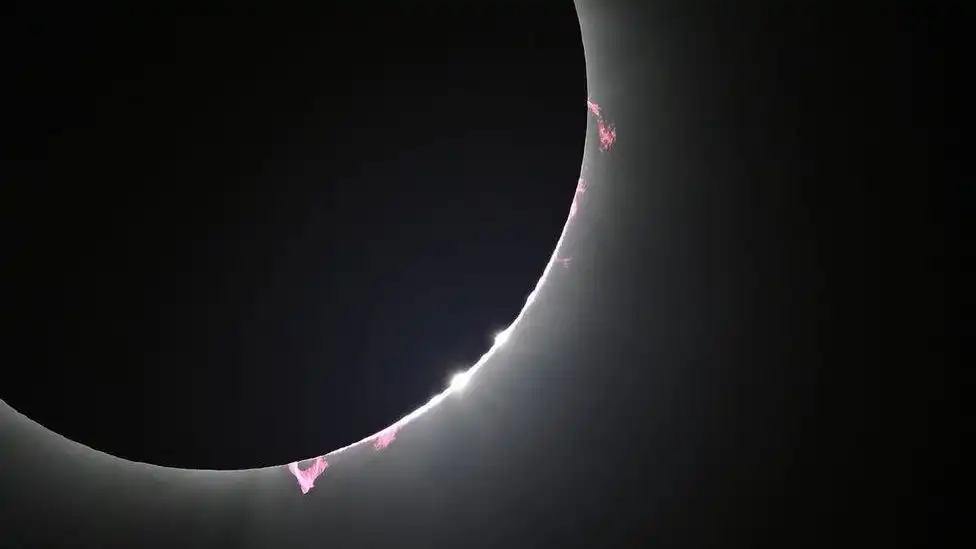Next solar eclipse 2024: Date and location in the United States
Millions in US, Canada, Mexico witness total solar eclipse. Next one in 2044, rare event not to be missed! #SolarEclipse2044
On Monday, a total solar eclipse captivated millions of people in the US, Canada, and Mexico, plunging entire cities into darkness as the Moon momentarily blocked the Sun's rays along the path of totality. Awe-struck stargazers, as well as those who missed the event due to cloud cover or other commitments, are now eager to know when they can witness this phenomenon again.
The next total solar eclipse in the contiguous United States is not expected to occur for over 20 years, specifically on August 23, 2044. Starting in Greenland and then moving towards Canada, this eclipse will only be visible in three US states - North Dakota, South Dakota, and Montana. The following year, in 2045, another eclipse will be visible coast to coast across the US and parts of Latin America.
While solar eclipses themselves are relatively common, with two to four occurring each year, total eclipses are much rarer due to the Earth's size and the majority of it being covered by oceans. The next total eclipse visible over Alaska will take place on March 30, 2033. The next total eclipse worldwide is set for August 12, 2026, with visibility in Greenland, Iceland, Spain, Russia, and a small area of Portugal.
During a solar eclipse, the Moon moves between the Earth and the Sun, blocking some or all of the Sun's rays from reaching our planet. This cosmic event requires precise alignment of the Sun, Moon, and Earth for the Moon to cast a shadow. This shadow can result in a partial solar eclipse, where only part of the Sun is obscured, or a total solar eclipse, where the Sun is entirely blocked by the Moon, leaving a ring of light visible in the sky.
As we eagerly anticipate the next total solar eclipse, let's marvel at the rarity and wonder of this celestial event that brings people together in awe and appreciation of the vast universe beyond our own planet.











Comments on Next solar eclipse 2024: Date and location in the United States